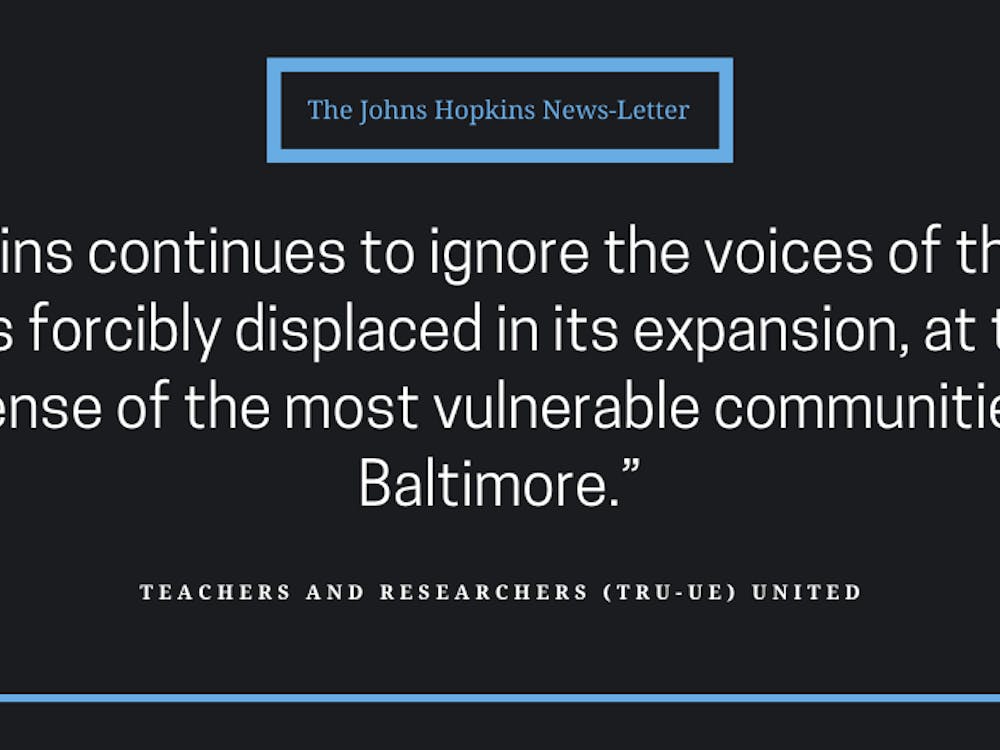Oscar Vasquez, a former undocumented immigrant, and Fredi Lajvardi, a high school robotics coach, spoke about politics and immigration in the Ralph S. O’Connor Recreation Center on Thursday, Sept. 7.
Lajvardi and Vasquez are featured in the book Spare Parts: Four Undocumented Teenagers, One Ugly Robot, and the Battle for the American Dream by Joshua Davis, which was selected as this year’s Common Read for the incoming freshman class. Every year, faculty and staff choose a book for the freshman class to read during the summer before they arrive on campus and then discuss during New Student Orientation.
Davis’ book recounts the true story of four undocumented students and their success at the Marine Advanced Technology Education Remotely Operated Vehicles (MATE ROV) Competition, an underwater robotics competition. The students ultimately beat Massachusetts Institute of Technology (MIT) for first place.
In 2015, a film based on the book was released. The book, unlike the movie, does not stop at the end of the competition, but continues to examine the ways in which undocumented immigrants face hardships in the U.S.
Freshman Christopher Caputo enjoyed hearing from Vasquez and Lajvardi after reading the book over the summer.
“Reading about [Vasquez and Lajvardi] is one thing, but when you can assign a face to a name, it takes it to a whole other level,” Caputo said.
Lajvardi, the teacher who coached the students to their robotics victory, began by showing a preview from the Spare Parts movie. Lajvardi said that the movie is an underdog story, since it focuses on the controversial topic of immigration.
“Because the movie deals with immigration... the movie industry thought this was a losing proposition,” Lajvardi said. “If half the country isn’t going to see the movie, they’re not going to make the movie.”
Lajvardi said that the film went through multiple studios before it finally got picked up by Lionsgate through a subsidiary called Pantelion Films. Pantelion has a mandate requiring that it produce a certain number of Latino films each year.
Lajvardi and Vasquez spoke about the challenges they faced after the MATE ROV competition in 2004. After graduating from Arizona State University, and receiving personal congratulations from President Barack Obama, Vasquez started a family. But, he was then separated from his family and deported back to Mexico. There, he was able to find a well-paying job, thanks to his engineering degree, until he could return.
“Even though, essentially, the U.S. government took my wife and family away from me for a while, they couldn’t take away my education,” Vasquez said.
Eventually, Vasquez said that he was able to come back to the United States legally because he was married to a U.S. citizen.
During the talk, three students who were selected as winners in an essay and visual arts contest on the book’s topic were recognized. Freshman Kelechi Nwankwoala wrote his essay about dealing with racism and fear.
“I considered my parents’ immigration to America and my own racial fears,” Nwankwoala said. “I wanted to illustrate how my own fears have changed over the years and how I have become more and more aware of the weight I shoulder.”
Vasquez and Lajvardi also talked about Deferred Action on Childhood Arrivals (DACA). U.S. President Donald J. Trump announced that Congress had until March, 2018 to find an alternative to DACA before he would rescind the Obama-era executive order. DACA protected children brought to the United States illegally, commonly known as Dreamers, from deportation.
“This action affects 800,000 [Dreamers],” Vasquez said. “That’s a lot of people who are actively working. If you think that taking these 800,000 people away from contributing to the economy doesn’t affect you, then you should probably think again.”
During the question-and-answer segment, freshman Patrick Rao discussed what students can do to help those affected by DACA. He explained why he feels strongly about taking action.
“It’s not enough to march one day and make one sign and think that one action will make a lasting impact,” Rao said. “We have to go through the proper channels to really make a difference. Call your senators, send them emails and make a sustained effort to create change.”
Freshman Elana Rubin reflected on the keynote’s themes.
“I was inspired seeing Oscar and Fredi in person,” Rubin said. “I want to follow [their] advice and take action to support people, especially considering recent events in politics and the news.”
In an email to The News-Letter, Allison Avolio, the director of residential life and Common Read committee member, explained why Spare Parts was selected.
“[The book] addresses the issues of both immigration and challenging students to consider alternate ways of learning,” she wrote. “Immigration is at the forefront of current events and a number of our students have first-hand experience with that identity, whether it be their own or of their relatives.”






















Please note All comments are eligible for publication in The News-Letter.